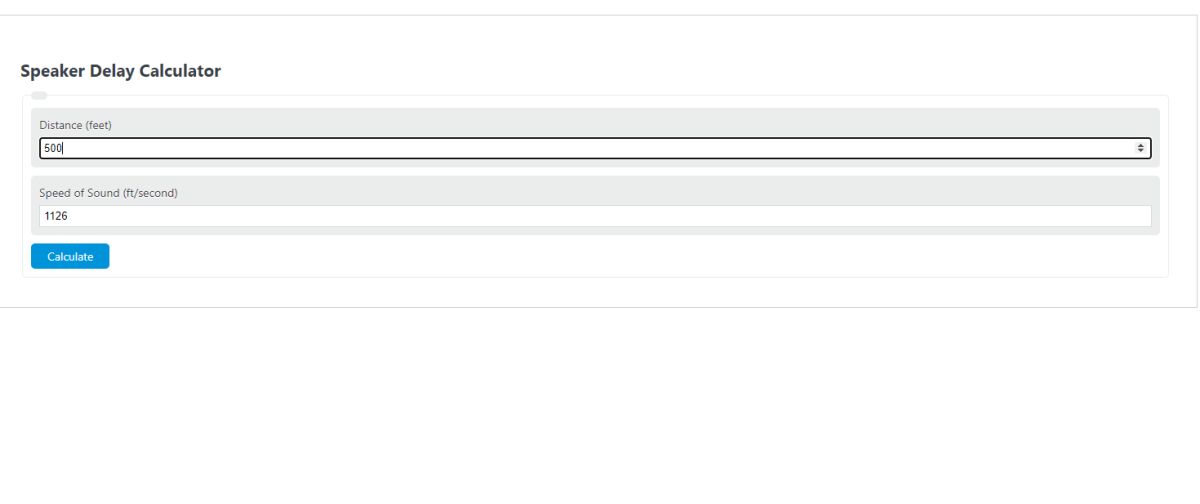Enter the distance from the speaker in feet and the speed of sound into the calculator to determine the speaker delay.
- Speaker Impedance Calculator
- Acoustic Impedance Calculator
- Speed of Sound Calculator
- Sound Pressure Level Calculator
- Acoustic Foam Calculator
- Speaker Voltage Calculator
Speaker Delay Formula
The following formula is used to calculate a speaker delay.
D = X / S * 1000
- Where D is the delay (ms)
- X is the distance from the source (ft)
- S is the speed of sound (ft/s)
- This is equal to 1126 feet/second at sea level and standard temperature
To calculate the speaker delay, divide the distance from the sound source by the speed of sound. This determines the time it takes the sound from the speaker to reach the person.
What is Speaker Delay?
Definition:
Speaker delay is a measure of the total time it takes sound to travel from a speaker to a certain location.
How to Calculate Speaker Delay?
Example Problem:
The following example outlines how to calculate a speaker delay.
First, determine the distance from the speaker. In this example, the person is standing 500 feet from the source speaker.
Next, determine the speed of sound. This is known to be 1126 feet per second at standard temperature and pressure.
Finally, calculate the speaker delay using the formula above:
D = X / S * 1000
D = 500 / 1126 * 1000
D = 444 milliseconds (ms)
FAQ
What factors can affect the speed of sound and thus the speaker delay?
The speed of sound can be affected by several factors including temperature, humidity, and altitude. Higher temperatures increase the speed of sound, while higher altitudes, where the air is less dense, can decrease it. Humidity also plays a role, with more humid air slightly increasing the speed of sound.
How does speaker delay impact the listening experience in large venues?
In large venues, speaker delay is crucial for ensuring that sound reaches all parts of the audience in a synchronized manner. Without proper delay settings, people farther from the speakers would hear sound later than those closer, leading to echoes and a blurred audio experience. Correctly calculated and applied speaker delay ensures a coherent and enjoyable listening experience for the entire audience.
Can speaker delay be adjusted for outdoor events?
Yes, speaker delay can and should be adjusted for outdoor events. Outdoor conditions such as wind direction and speed can affect how sound travels. Sound engineers use speaker delay settings to compensate for these variables, ensuring that sound is evenly distributed throughout the audience area, regardless of environmental conditions.
